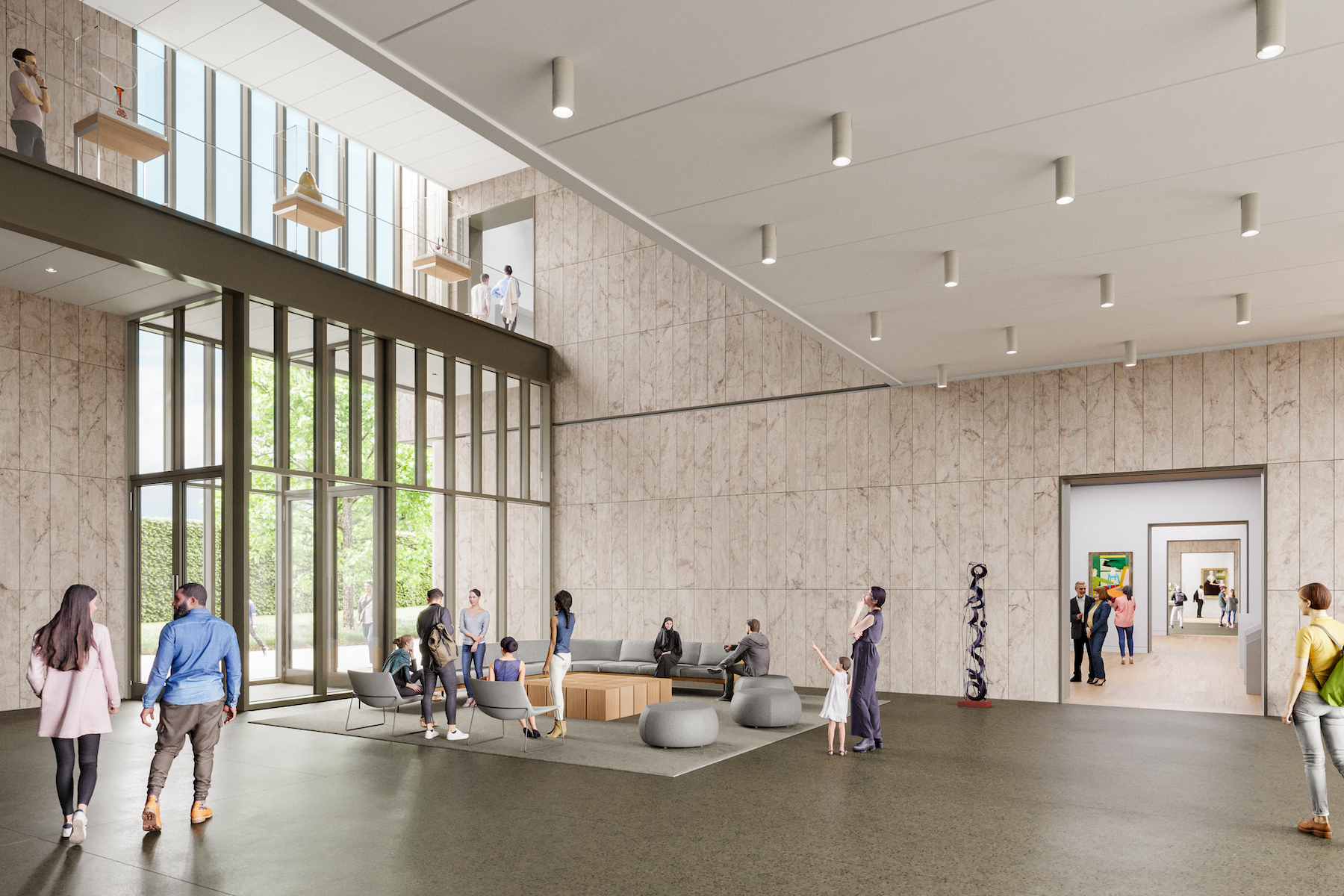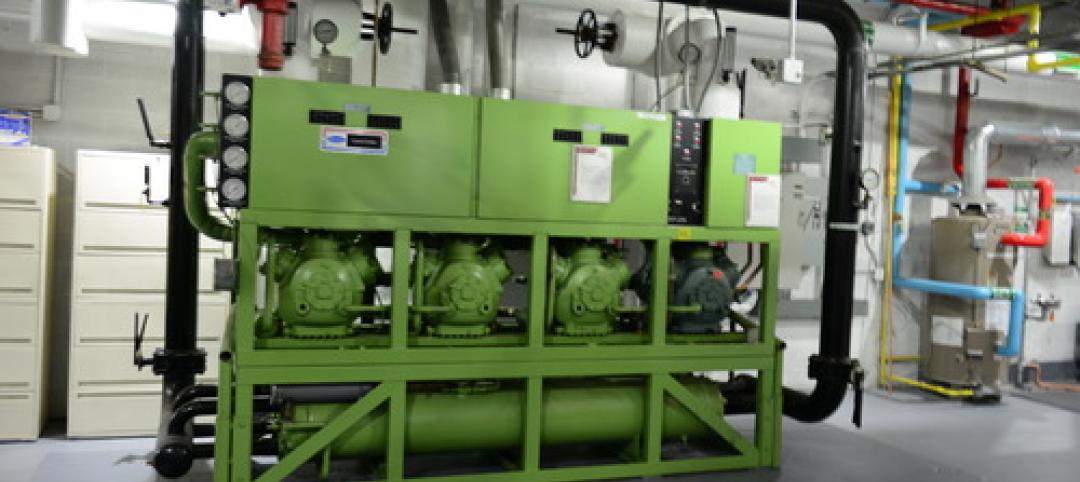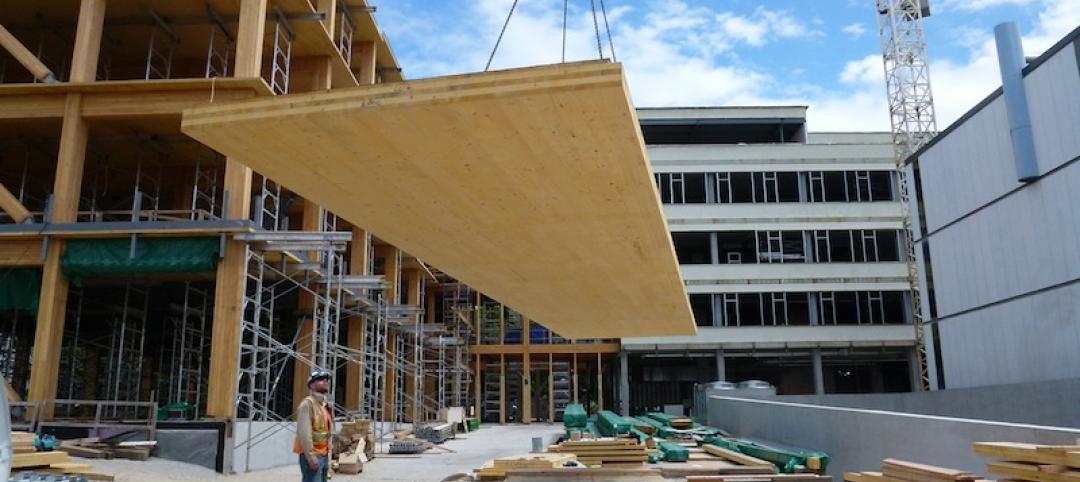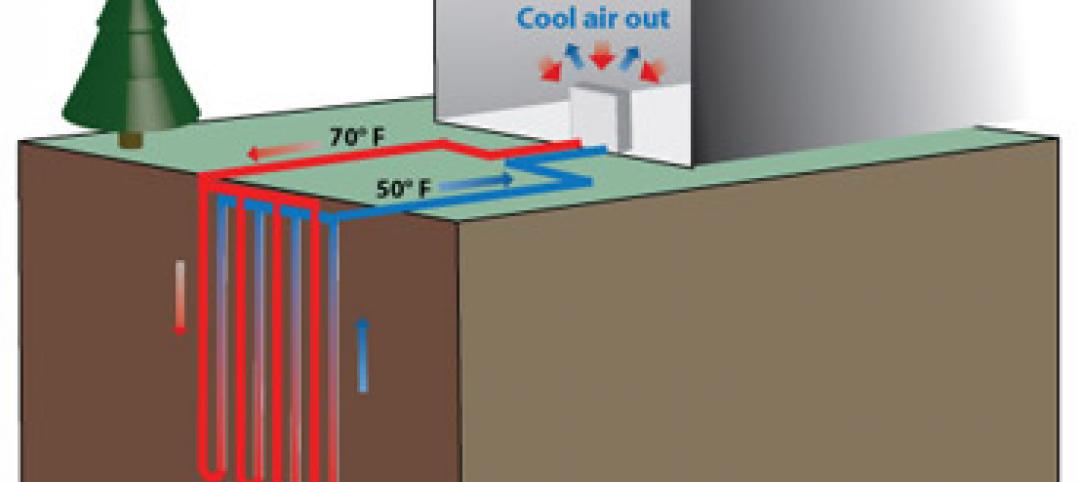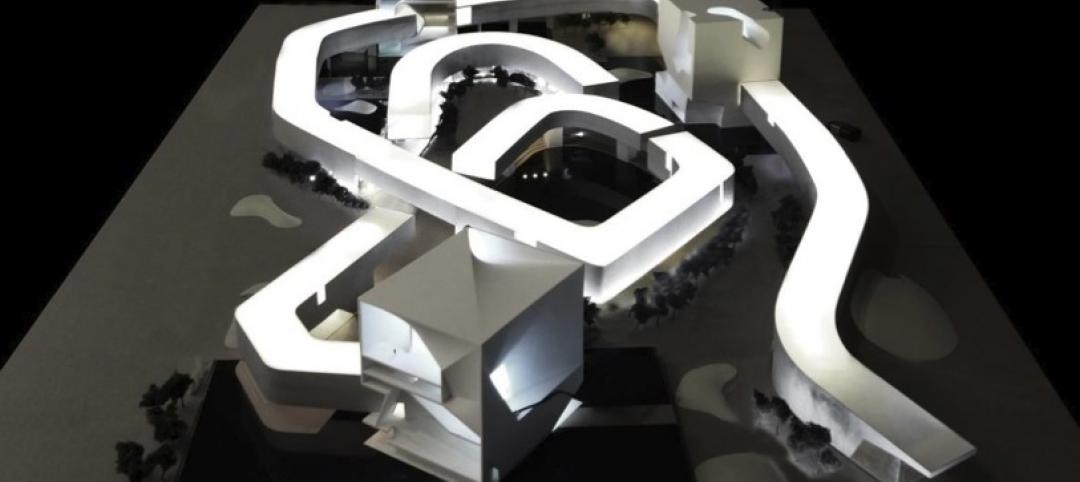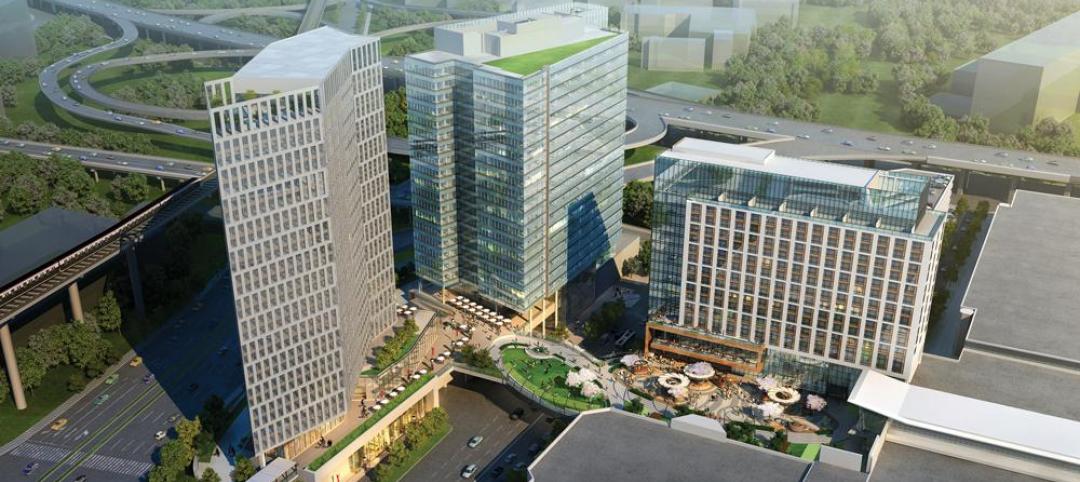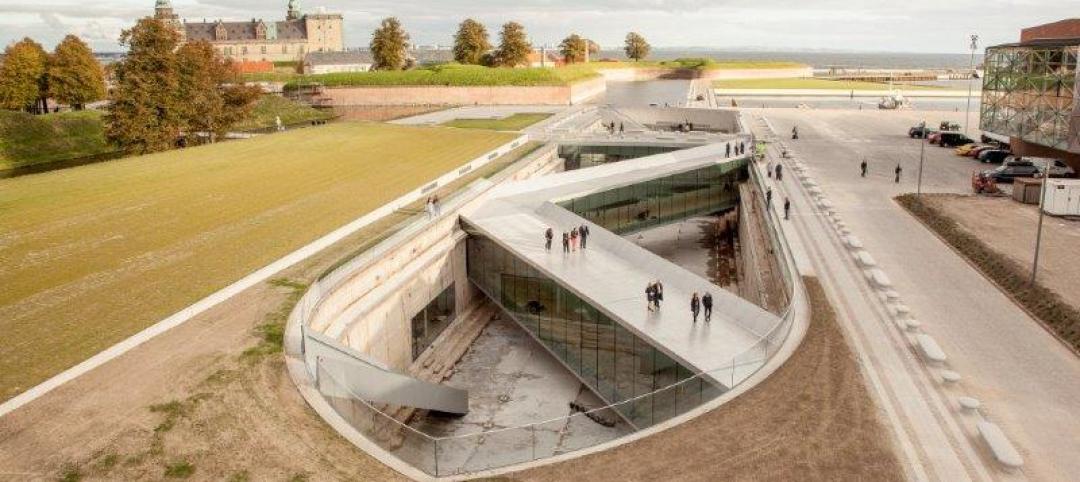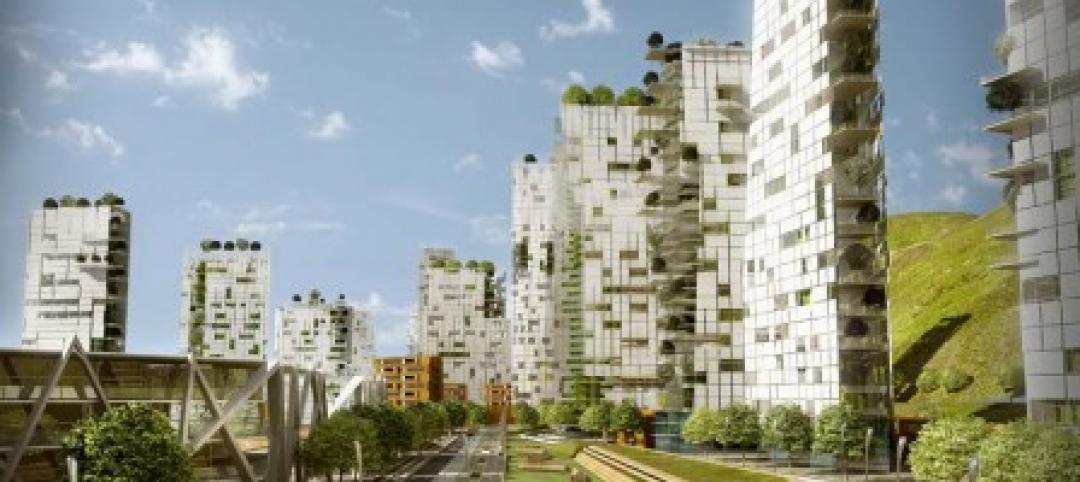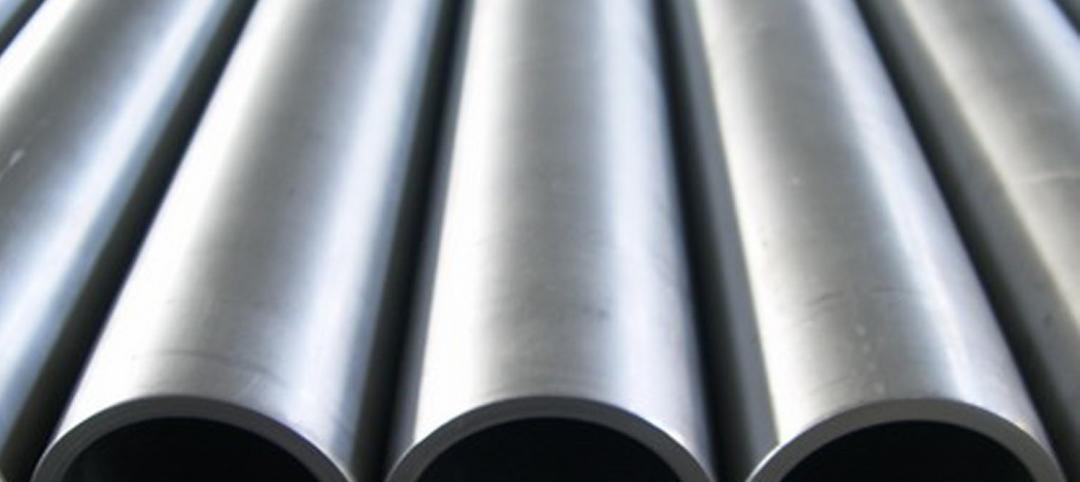On June 1, Palmer Museum of Art at Pennsylvania State University will open a 73,000-sf building with five acres of landscape within the University Park campus’ 370-acre Arboretum and adjacent to the H.O. Smith Botanic Gardens.
The project, designed by the architect Allied Works and landscape architect Reed Hilderbrand, is one of the latest expressions of the museum design trend that blurs the lines separating indoor and outdoor spaces.
Also see: Teddy Roosevelt library aims to be one with nature.
For more than a decade, museum designers have been forging the connection between exhibit space and natural surroundings. The Milwaukee Public Museum recently broke ground on the largest cultural project in Wisconsin’s history, the five-story 200,000-sf Future Museum, codesigned by Ennead Architects and Kahler Slater, with construction by Mortenson and ALLCON scheduled to begin next month. The building’s design harkens to the region’s diverse landscapes formed by movements of water over time. The Future Museum, situated on 2.4 acres in Milwaukee’s Haymarket neighborhood, will include two gardens designed by GGN, located near the entrance and on a rooftop terrace, providing an opportunity to bring native plants into the city’s urban environment.
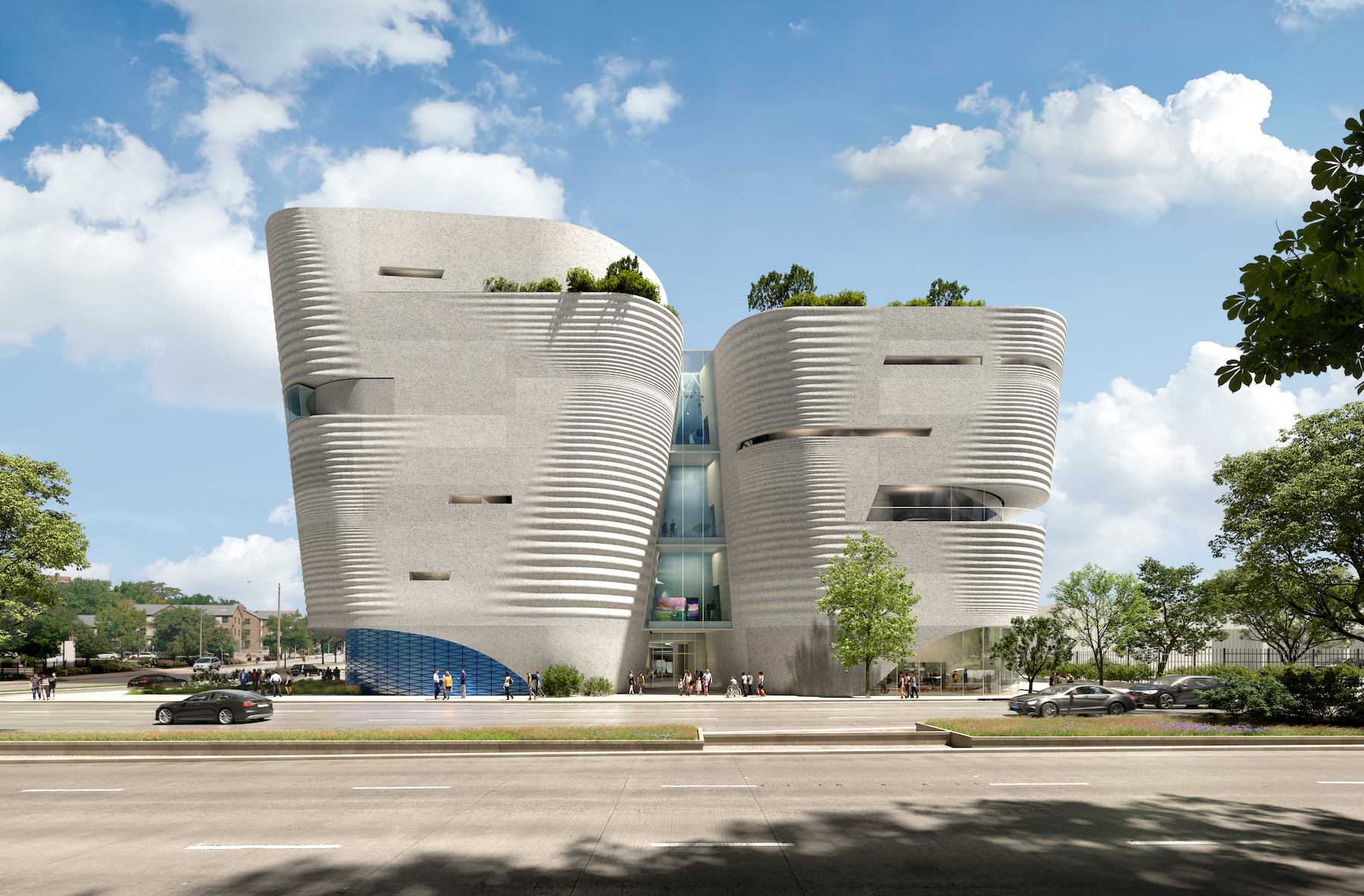
Williams College, in Williamstown, Mass., in March unveiled renderings for its first purpose-built art museum, which is scheduled to open in 2027. This three-story, 76,800-sf museum, designed by SO-IL, will consist of four program areas. A courtyard garden stands at the heart of this mass timber building. And views of the Berkshires’ landscape open from the central lobby toward the main entrances. Seating areas between the museum’s galleries offer view of the landscape, as does a lounge that unifies research space and classrooms. The landscape around the building will be reforested and renewed, with flowering meadows and gardens featuring native plants.
The Building Team for the Williams College Art Museum includes PDR (executive architect), Reed Hilderbrand (landscape architect), Fast + Epp (SE), Buro Happold (MEP), Fuss & O’Neil (CE), Thornton Tomasetti (sustainability consultant), Consigli (CM), Skanska (owner’s project manager), FMS (lighting designer), and SGH (envelope consultant).
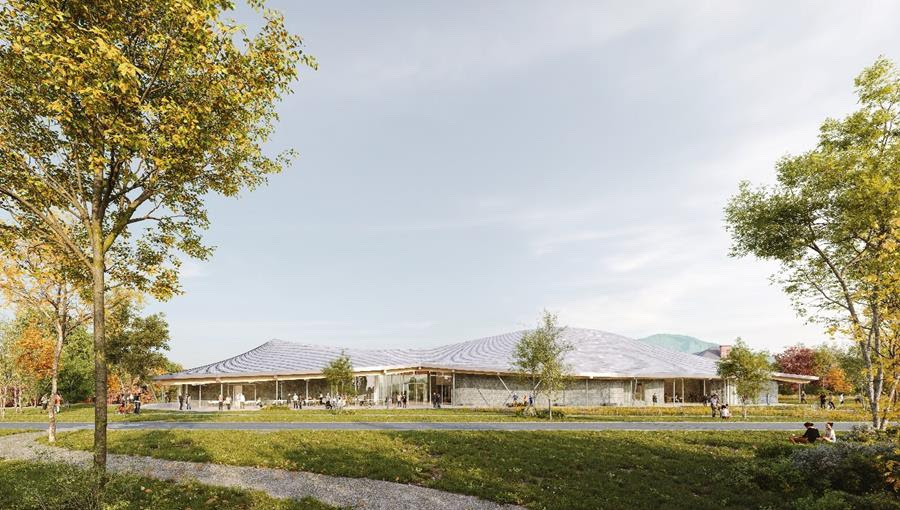
Credit: Jeudi.Wang, courtesy SO–IL and the Williams College Museum of Art.
Like strolling through a garden
The design of Penn State’s new $85 million Palmer Museum of Art doubles the existing building’s footprint and includes 20 galleries, new educational and event spaces, a sculpture path, and outdoor terraces. Grasslands, gardens, and woodlands of the Arboretum inspired the museum’s design, too. Interlocking pavilions define six courtyards and create space for the terraces and gardens. An overhead bridge joins the museum’s two wings, and creates a gateway to the botanic gardens and nearby Pollinator and Bird Garden.
“As a lifelong gardener, the prospect of merging my two passions, art and landscape, was very exciting,” said Allied Works’ Principal Brad Cloepfil, in a prepared statement. “The Palmer Museum of Art’s new location invites you on a walkthrough of the gardens and galleries as the building moves over the site.”
Erin M. Coe, Palmer Museum of Art director, added that a visit to the museum “provides a remarkable opportunity to meander through spaces filled with works of art as though one were strolling through the landscape.”
Related Stories
| Nov 25, 2013
Building Teams need to help owners avoid 'operational stray'
"Operational stray" occurs when a building’s MEP systems don’t work the way they should. Even the most well-designed and constructed building can stray from perfection—and that can cost the owner a ton in unnecessary utility costs. But help is on the way.
| Nov 19, 2013
Top 10 green building products for 2014
Assa Abloy's power-over-ethernet access-control locks and Schüco's retrofit façade system are among the products to make BuildingGreen Inc.'s annual Top-10 Green Building Products list.
| Nov 13, 2013
Installed capacity of geothermal heat pumps to grow by 150% by 2020, says study
The worldwide installed capacity of GHP systems will reach 127.4 gigawatts-thermal over the next seven years, growth of nearly 150%, according to a recent report from Navigant Research.
| Nov 13, 2013
First look: Renzo Piano's addition to Louis Kahn's Kimbell Art Museum [slideshow]
The $135 million, 101,130-sf colonnaded pavilion by the famed architect opens later this month.
| Oct 30, 2013
15 stellar historic preservation, adaptive reuse, and renovation projects
The winners of the 2013 Reconstruction Awards showcase the best work of distinguished Building Teams, encompassing historic preservation, adaptive reuse, and renovations and additions.
| Oct 30, 2013
Steven Holl selected for Culture and Art Center in Qingdao, besting Zaha Hadid, OMA
Steven Holl Architects has been selected by near unanimous jury decision as the winner of the new Culture and Art Center of Qingdao City competition, besting OMA and Zaha Hadid Architects. The 2 million-sf project for four museums is the heart of the new extension of Qingdao, China, planned for a population of 700,000.
| Oct 30, 2013
11 hot BIM/VDC topics for 2013
If you like to geek out on building information modeling and virtual design and construction, you should enjoy this overview of the top BIM/VDC topics.
| Oct 29, 2013
BIG opens subterranean Danish National Maritime Museum [slideshow]
BIG (Bjarke Ingels Group) has completed the Danish National Maritime Museum in Helsingør. By marrying the crucial historic elements with an innovative concept of galleries and way-finding, BIG’s renovation scheme reflects Denmark's historical and contemporary role as one of the world's leading maritime nations.
| Oct 28, 2013
Urban growth doesn’t have to destroy nature—it can work with it
Our collective desire to live in cities has never been stronger. According to the World Health Organization, 60% of the world’s population will live in a city by 2030. As urban populations swell, what people demand from their cities is evolving.
| Oct 18, 2013
Researchers discover tension-fusing properties of metal
When a group of MIT researchers recently discovered that stress can cause metal alloy to fuse rather than break apart, they assumed it must be a mistake. It wasn't. The surprising finding could lead to self-healing materials that repair early damage before it has a chance to spread.


